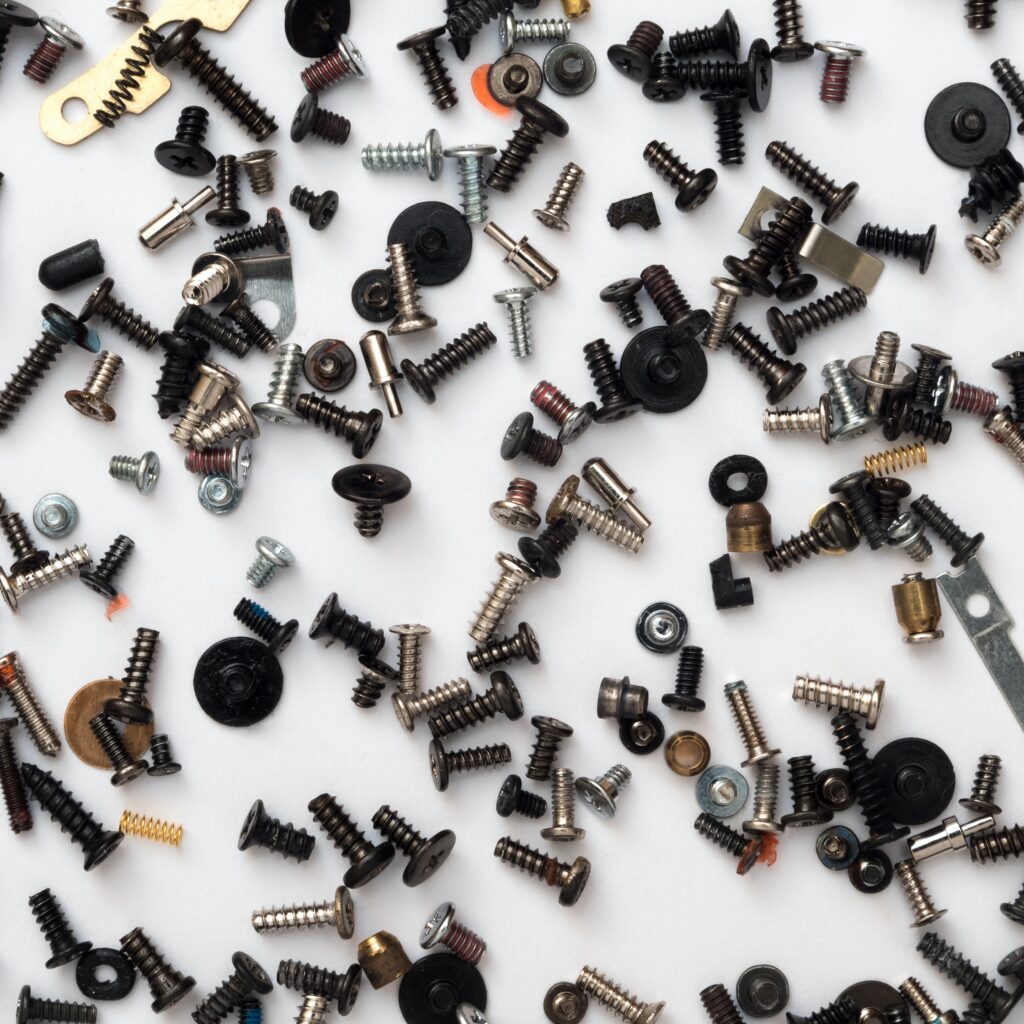
The Problem
A leading Northeast manufacturer of products used in commercial and residential construction faced a challenge around the quality and consistency of its headed fasteners.
Specifically, improvement was needed in a crucial part of the manufacturing process: the hardening method. In order for headed fasteners to be effective agents for attaching one thing to another—say, a shingle to a wooden beam—they need to be made tough and unyielding.
The existing procedure went something like this: A bucket full of formed-but-not-yet-hardened fasteners entered an oven. The fasteners heated to “cherry red”—i.e., well over 1,000°. Next, the bucket was emptied into a quenching tank filled with cool water. The sudden, extreme temperature change would cause the headed fasteners to harden.
While generally effective, this batch heating-and-cooling process was resulting in undesired variability. When poured into the cooling tank, fasteners hit the water in different ways—some headfirst, others tailfirst, still others horizontally—causing them to cool at different rates. That meant that some fasteners assumed the straight, vertical silhouette desired while others would curl. A curved fastener, of course, is of no use.
To obviate this problem, engineers at the company sought a new process wherein one fastener would be hardened at a time, allowing for more control of each piece. They landed on a concept for an induction heating system, which they suspected would fit the bill. An obvious problem with hardening each fastener separately, however, was throughput: Could a system like this keep up with production demands?
The Solution
More than a dozen years prior, Abacus had done another job for this company. A designer at the company recalled that positive experience and contacted Abacus about the current challenge
Fortunately, the passage of time had not dulled Abacus’s ability to provide customized automation solutions with service to match. After being brought up to speed, Abacus met with the internal team tasked with solving the fastener-hardening dilemma. Since a solution concept was already in place, Abacus collaborated with the group to think through development and create an actionable plan.
Once a plan was in place, Abacus created a prototype for the arrived-at solution: A fastener would fall headfirst through an induction coil, growing cherry red before being stopped—briefly and head-down—at a gate blocking the bottom aperture. The gate would then open and the fastener would fall into the quenching tank—head-down, every time. This would ensure a batch of perfectly straight fasteners at a rate of 40 parts per minute.
The client took the prototype back to its facilities for further research and development. A multitude of studies, trials, and tests led all involved to a high confidence level that the new machine could deliver the desired results.
At this point, the client commissioned a completed machine from Abacus. The final piece of equipment, currently receiving finishing touches on Abacus’s factory floor, contains four lanes, allowing four headed fasteners to undergo hardening at the same time. And, since Abacus succeeded in speeding up the original processing rate, the machine can harden a total of 220 parts per minute, faster than the previous pace.
The Results
Abacus proved an invaluable partner to the client company, providing:
- Collaborative R&D. The client company’s product knowledge and solution ideation combined with Abacus’s engineering and execution chops for optimal results.
- Consistency and control. The final machine assures that every headed fastener assumes the linear form desired. Quality is greatly improved.
- Satisfactory throughput. The new system allows the client company to churn out hardened fasteners at the rate required to meet production goals.


Leave a Reply